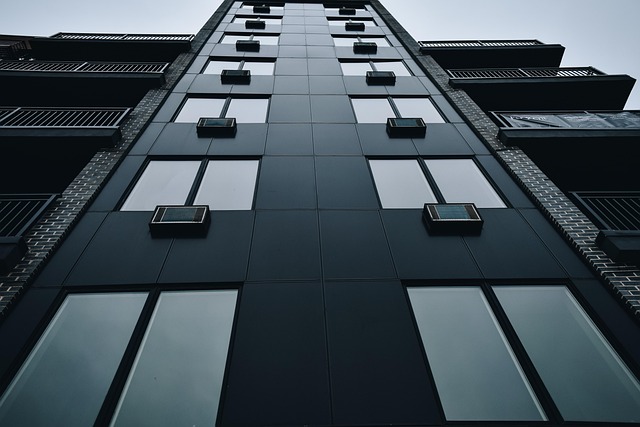In New York City, housing rights for convicted child abusers are governed by state and local laws aimed at protecting victims and maintaining safe communities. Due to stringent regulations, individuals with a history of child abuse face severe restrictions when seeking accommodation. Child abuse lawyers, attorneys, and law firms advocate for their clients' rights, guide them through complex regulations, and provide tailored support based on unique case circumstances. These professionals also tackle intricate legal matters surrounding child sexual assault cases. Specialized shelters and reintegration programs offer essential resources, while advocacy groups push for more compassionate housing solutions to break cycles of marginalization.
In New York City, navigating housing for convicted child abusers presents a complex web of legal and social challenges. This article delves into the intricate dynamics surrounding housing rights and restrictions for these individuals, guided by the lens of child abuse lawyers in NYC. We explore the legal framework, including stringent regulations targeting offenders, while shedding light on the arduous task of finding accommodation in the bustling city’s limited housing market. Furthermore, we present supportive housing options and offer insightful case studies, providing a comprehensive overview for child abuse attorneys and advocates navigating this critical issue in NYC.
Understanding Housing Rights and Restrictions for Child Abusers in NYC
In New York City, understanding housing rights and restrictions for convicted child abusers is crucial. While every case is unique, various state and local laws aim to protect victims and ensure safe communities. Convicted individuals face significant limitations when seeking accommodation. Housing providers often conduct background checks, and those with a history of child abuse may be denied or face stricter conditions. This includes possible restrictions on renting or buying within specific zones or having special requirements for supervision or monitoring.
Child abuse lawyers in New York, along with child abuse attorneys and law firms across the city, play a vital role in advocating for their clients’ housing rights while adhering to legal constraints. They guide individuals through the process, ensuring they comply with necessary regulations and understand their options. These professionals work closely with local authorities and housing authorities to navigate the complexities of finding suitable accommodation post-conviction, offering support tailored to the unique circumstances of each case.
Legal Framework: Laws and Regulations Targeting Child Abuse Offenders
In New York City, laws and regulations targeting child abuse offenders are stringent to ensure the safety of children within the community. Child abuse lawyers in NYC, along with their counterparts as child abuse attorneys and at child abuse law firms across the city, play a pivotal role in navigating these legal frameworks. They represent victims, advocate for their rights, and guide offenders through the justice system.
The city’s legislation, reinforced by dedicated child abuse law firms in NY, defines child abuse under various categories, including physical, emotional, sexual, and neglectful acts that cause harm to minors. Child sexual assault lawyers in NYC, as part of these law firms, are particularly crucial in addressing the complex legal issues surrounding sexual abuse cases. The legal process involves thorough investigations, evidence gathering, and prosecution, with strict penalties for convicted abusers, which may include housing limitations within the city.
Challenges in Finding Accommodation: The Limited Housing Market in NYC
Finding accommodation for convicted child abusers in New York City (NYC) presents unique challenges due to the highly competitive and limited housing market. As a child abuse lawyer or attorney in NY, you often encounter clients facing severe difficulties in securing suitable housing options post-incarceration. The city’s dense population and high cost of living create a tight real estate market, making it even more arduous for individuals with a criminal record to locate affordable and accessible homes.
This dilemma is particularly acute for child abuse survivors transitioning back into the community, as they require safe and supportive housing arrangements. Child abuse law firms in New York, NY, play a crucial role in advocating for their clients’ housing rights, assisting them in navigating complex rental or housing applications and addressing potential discrimination based on their past convictions. Effective legal representation is essential to ensure these individuals can rebuild their lives and access the resources they need to recover from their traumatic experiences.
Supportive Housing Options: Shelters and Reintegration Programs
For convicted child abusers seeking supportive housing in New York City, shelters and reintegration programs offer crucial resources. These specialized facilities provide safe and structured environments, catering to the unique needs of individuals who have committed such heinous acts. Many of these programs focus on therapeutic recovery, offering counseling services and group support sessions designed to help abusers confront and address their behaviors.
Shelters often collaborate with child abuse lawyers and law firms in New York, like those represented by attorneys specializing in child sexual assault cases, to ensure a holistic approach to rehabilitation. These partnerships facilitate access to legal advice and representation, which is essential for navigating complex housing regulations and understanding the rights of both abusers and potential victims within these programs.
Case Studies: Real-World Examples of Housing Outcomes for Convicted Child Abusers
In real-world scenarios, the housing outcomes for convicted child abusers in New York City (NY) present a complex narrative. Many former offenders struggle to find stable accommodation due to the inherent sensitivity of their past and the stringent policies implemented by landlords and housing authorities. Case studies reveal that individuals with a history of child abuse often face systemic barriers when seeking rental properties, leading to a cycle of homelessness or temporary, substandard living arrangements.
For instance, a study focusing on post-incarceration challenges in NYC found that convicted child abusers frequently encounter refusal from landlords, even after completing their sentences and rehabilitation programs. This is despite the fact that many have undergone extensive therapy and community service to atone for their actions. As a result, they may resort to staying in shelters or securing temporary housing through social services, which can be detrimental to their long-term well-being and reintegration into society. Child abuse lawyers in New York, along with child abuse attorneys and law firms specializing in this field, advocate for more compassionate approaches to housing for these individuals, aiming to break the cycle of marginalization and provide opportunities for redemption and productive lives.






